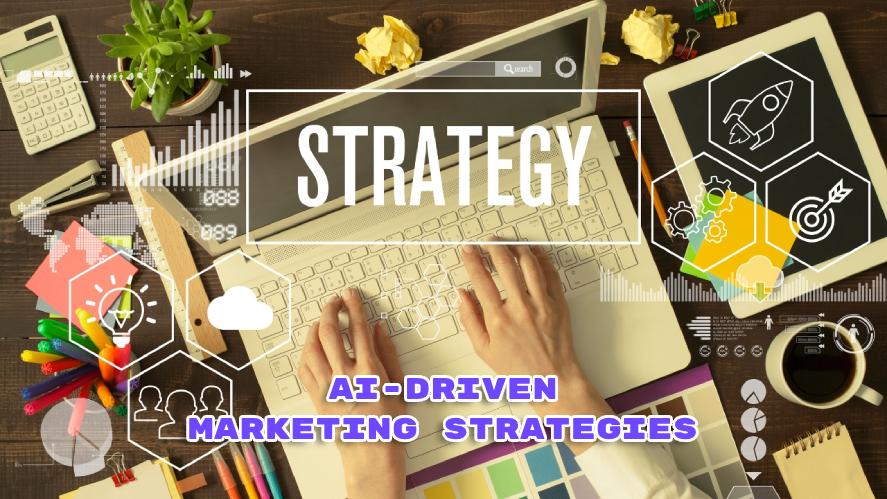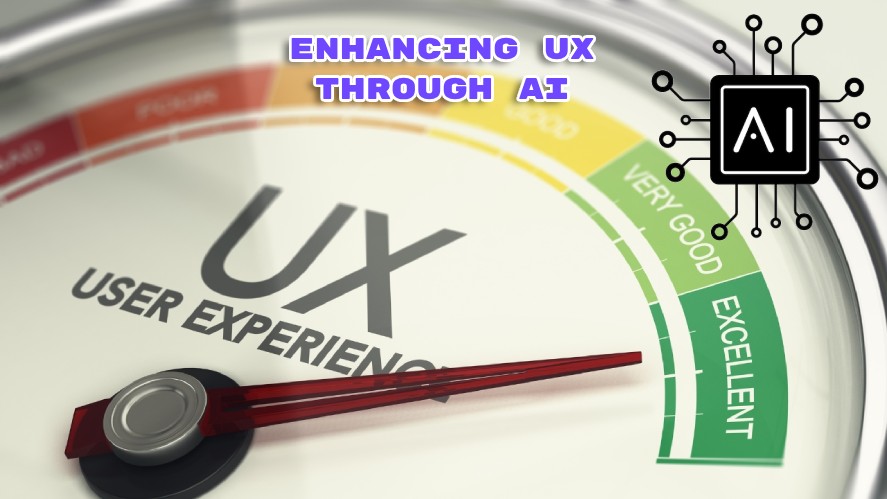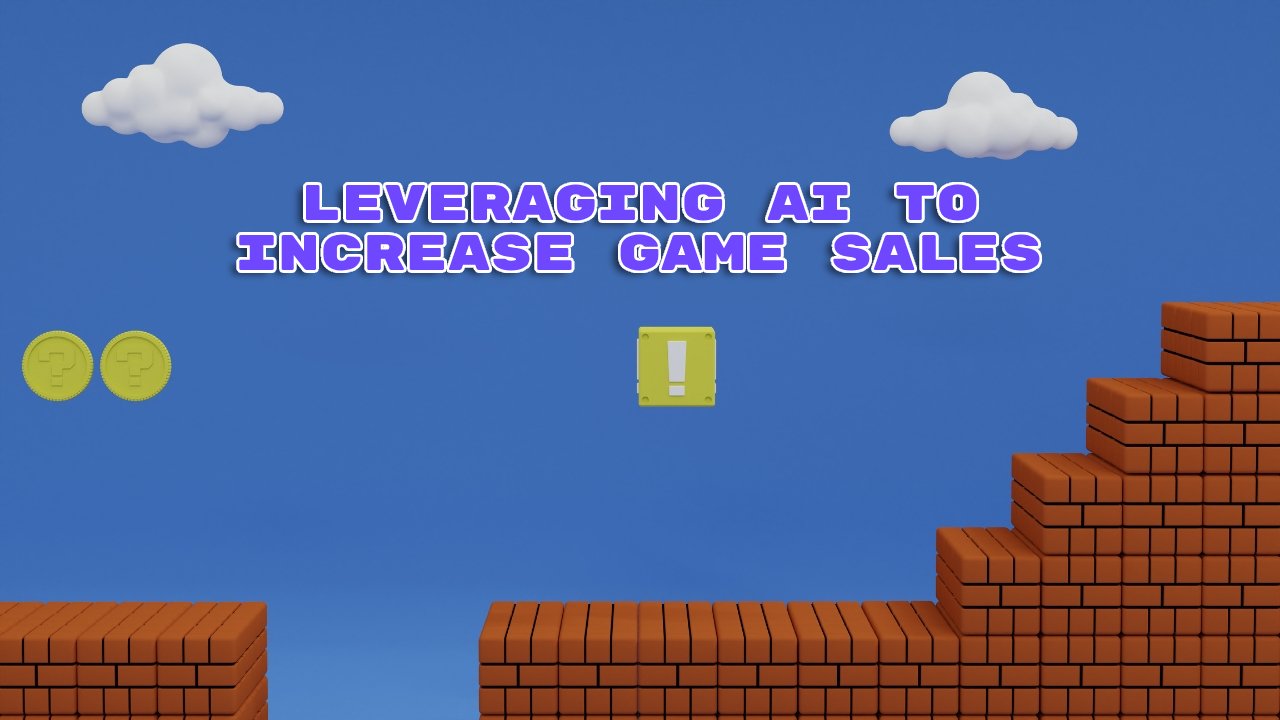In recent years, we’ve witnessed fast-paced development in the gaming industry. However, the emergence of artificial intelligence (AI) is also shaping a more promising landscape.
This power tool has redefined how games are created and experienced. Also, it streamlines the game development process and marketing strategies, thus enhancing player experiences.
As technology keeps improving, what happens after a game is released is super important. While creating an outstanding game is a big deal, the real challenges lie in maximizing the profitability after it hits the market.
So, let’s now delve into our article to have a clear vision in mind about how AI can enhance post-publishing sales and make the game successful in the competitive world.
Background: AI’s Growing Influence in Gaming
AI’s role in the gaming industry has evolved significantly over the years. It started in simple games and has become a big part of making games today.
The Early Days
AI has been in use in computerized games long before modern video games.
One of the earliest outstanding examples is a mathematical strategy game called Nim in 1951. In this game, computers regularly beat the human players.
During that year, the AI Ferranti Mark 1 computer at the University of Manchester also created some of the first-ever computer games, like checkers and chess.
1970s
The 1970s saw AI becoming an integral part of video game design.
Notably, Space Invaders is an outstanding example, as it had harder levels and made the aliens move in different ways depending on how players played.
Another game example, Pac-Man, used AI to give ghosts in the game different personalities.
1980s and 1990s
Sports games at this time began using AI to enhance player experiences.
Some games simulated real-world coaching and managerial strategies, such as Earl Weaver Baseball, Madden Football, and Tony La Russa Baseball.
1990s and 2000s
In the 1990s and 2000s, games began using AI in new ways. Players can find AI to help them in real-time strategy games, such as finding the best paths to move or making quick decisions.
Although some early games using this method, like Herzog Zwei, had problems, these issues were soon resolved as AI became more sophisticated.
Later, AI even had conversations with players in games, like “Façade” in 2005.

As AI has continued to improve constantly, it is like a super tool in game development. It helps create realistic NPCs and shape their behavior, making the game more challenging and unpredictable.
Additionally, AI is used to improve game graphics and visual effects, creating immersive worlds with dynamic experiences, thus increasing player retention.
The application of AI is further involved in creating new game levels, designing exciting stories and scenarios, and keeping the game’s challenge at just the right level.
But the potential of AI does not stop at game development; AI in marketing is also a game-changer. It can transform how games are promoted and reach the right players at the right time.
Gaming companies can use AI to create content for marketing messages, copywriting materials, website copy, and other materials to boost game visibility to targeted audiences.
Also, marketers find AI an efficient way to increase player satisfaction by training AI to resolve tickets and respond to questions quickly.
Importantly, AI watches what players say on social media and gaming forums to see how they feel, what’s popular, and what they think about the game. Then, publishers will look at the results and make informed decisions about game marketing strategies.
The Power of Data in Post-Publishing
In today’s gaming world, publishers can use AI and data to improve games after release.

This helps developers gain insights into user experience and make games even better.
User Behavior Analysis
Since each action, such as clicking, viewing, or even dropping out of the game, leaves a trail of valuable data, game creators can gain clear insights into player behavior by analyzing this data.
As more information is collected, developers are guided by a treasure map to player satisfaction.
AI has been able to work alongside data analytics effectively. It can analyze player data at incredible speed and scale compared to humans and adjust for optimal user experience.
For example, craft adaptive narratives or branching storylines based on player preferences. This approach, by far, drives players to a more engaging and exciting gameplay experience.
Sales Pattern Analysis
Data analytics also play significant roles in tracking the ups and downs of sales. By looking at the detailed trends, game publishers can understand what’s happening and make predictions about the future.
For example, they can prepare for big game sales increases or make changes when sales are about to drop.
Also, by accurately capturing the sales situation at the time, developers can use AI tools to run promotions, offer discounts, and provide special incentives to players.
It’s like the in-time game marketing strategies, which present promotions in front of players at the right time. Consequently, increasing sales and retaining players for longer.
AI-Driven Marketing Strategies
In today’s digital landscape, AI has proven its endless possibilities in-game marketing.

By applying AI to marketing strategies, publishers can reach their audience more effectively and create engaging experiences for players.
Personalized Advertising
Gone are the days when generic advertising was applied to all audiences. With AI, developers can craft ads based on user behavior and preferences.
As the ads tend to be more personalized to individuals, the possibility of successfully converting visitors into customers has significantly increased.
Furthermore, AI doesn’t stop there. It can also ensure that the right ad is displayed at the right time.
This approach uses AI algorithms to calculate and adjust the ad placement to maximize its impact and ensure every player can see the most relevant content.
Content Recommendation
AI also helps players discover new content they might enjoy. By analyzing player behavior and how they interact with the game, AI can suggest in-game purchases and expansions or even recommend other games that align with the player’s preferences.
This way, game publishers can increase their revenue and even introduce players to their new game projects.
Social Media and Community Engagement
Social media are places where lots of people spend time sharing their knowledge, ideas, hobbies, and interests. So, it is essential to understand what players and potential customers discuss on these networks.
As AI tools can analyze trends and discussions related to the games, they provide publishers with valuable insights. Then, publishers use them to establish clear strategies to align their games with the majority.
Moreover, AI actively engages with players and potential customers on social media and community platforms. By responding to comments or discussions, AI can help developers build a solid and active gaming community.
Enhancing User Experience Through AI
Besides other outstanding features, AI also affects how players interact with their favorite games.

From adjusting the game to align with players’s preference to providing support, AI enhance user experience to a new level.
Dynamic Game Adjustments
When playing games, all players want is enjoyment and satisfaction. Now, with AI, all those desires can easily be fulfilled as AI adjusts the games to cater to individual preferences.
As AI provides personalized experiences, it makes players feel valued and involved in the gaming world, thereby retaining players for a longer period.
Additionally, AI suggests in-game purchases that align with a player’s preferences, which boosts the overall revenue and success of the game.
Customer Support and AI Chatbots
AI-driven customer support is always available to assist players and user feedback.
Whenever players need assistance with a tricky level or have a general question, AI helps resolve problems quickly. This way helps enhance player satisfaction as well as boost the gaming experience.
Furthermore, as AI is trained carefully and accumulates data from various queries, it can swiftly address common problems.
Consequently, players leave positive reviews because they experience efficient support and timely solutions.
Pricing Strategies with AI
AI in the gaming industry has become widely popular and is used in various aspects, including pricing strategies.

Since pricing strategy is the key for any game publisher to stay competitive and profitable, let’s explore how AI is integrated into different pricing models.
Dynamic Pricing
This model is about adjusting pricing to adapt to rapidly changing market conditions.
In other words, it helps developers set the right price at the right time by analyzing demand, competition, and other market factors.
With AI at hand, gaming businesses can gain success in dynamic pricing strategies. Because AI algorithms process large amounts of data in real-time and identify the trends that humans often overlook, game publishers can make more accurate decisions to adapt to the ever-changing market.
Moreover, AI knows the perfect timing for discounts and bundles.
AI can segment players based on factors such as buying history and preferences. Then, it uses this data to offer personalized pricing options when they are likely to make purchases.
Subscription Models
On the other hand, some game creators embrace subscription models.
They can leverage AI to analyze user data such as their browsing history, purchase history, behavior, preferences, and much more. Then, suggest the most suitable subscription benefits and pricing tiers for individual players.
By analyzing user data in specific cases, AI helps game publishers refine their subscription models, ensuring both player retention and increased profit.
Case Studies: Success Stories in AI-Driven Game Sales
To help you have clear insights into how AI affects post-publishing game sales, let’s delve into several examples of games and developers that have effectively leveraged AI.

The Last of Us: Part I
AI made characters in the game became smarter. They could now spot enemies better and act more stealthily.
This made the game’s story even more immersive. More people bought the game, thus leading to higher sales.
FIFA 22
In “FIFA 22” from EA Sports, AI was used to make the players move in a more realistic way.
It also made other characters in the game smarter. Non-player characters could make better attacking moves, and defenders were better at defending.
This made the game more fun, and more people wanted to play it, so there is no surprise that the sales went up.
FORTNITE
Epic Games, the creator of Fortnite, is a great example of how AI can boost post-publishing sales.
In this game, AI analyzes players’s skills and matches them with others of similar abilities, creating more balanced and enjoyable gameplay. This approach keeps players engaged and encourages in-game purchases.
All in all, by enhancing gameplay and offering tailored experiences, AI keeps players engaged and satisfied during the gameplay, leading to more in-game purchases and increased game sales for developers.
Challenges and Considerations
Although AI has various possibilities and advantages, it is essential to acknowledge the challenges and ethical considerations when using AI in game publishing and sales strategies.
First, there are several potential pitfalls that developers and publishers need to navigate.
Over-personalization can sometimes happen, such as offering too many tailored promotions or pricing options to players. This, in contrast, negatively affects their overall experience.
Also, data privacy should be paying attention. While collecting data is essential, it is also crucial to respect player privacy.
Second, ethical considerations are also important.
To build trust with players, developers should emphasize transparency in how AI is employed in the game and how data is collected. This way, developers can ensure that all AI-driven approaches are accessible and fair for all players.
Conclusion
In the ever-evolving landscape of the gaming industry, AI has constantly evolved and contributed to boosting post-publishing sales.
By leveraging AI in video game marketing, game publishers can better understand player behavior, optimize pricing, and provide tailored experiences.
This approach supports game sales boost and navigates developers to gain substantial success in game development.
Ultimately, with responsible and ethical implementation, AI can shape the future of gaming, offering players an immersive and exceptional experience.
Loading survey...

